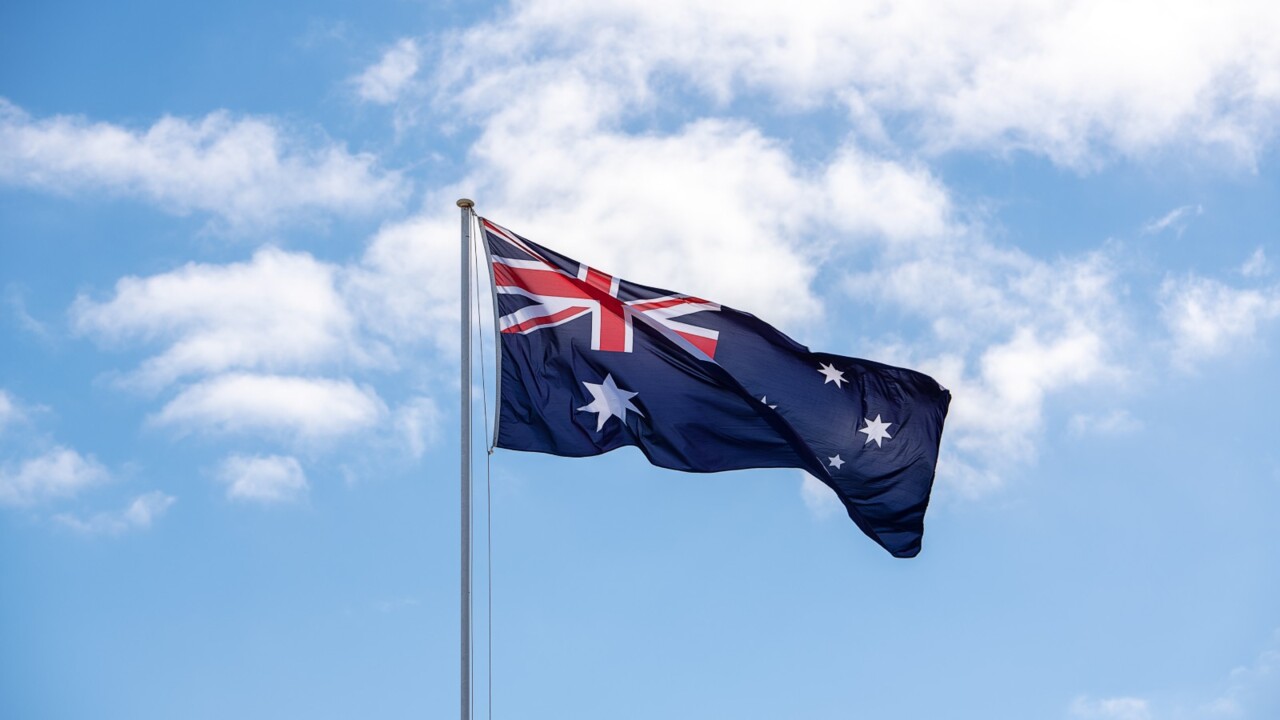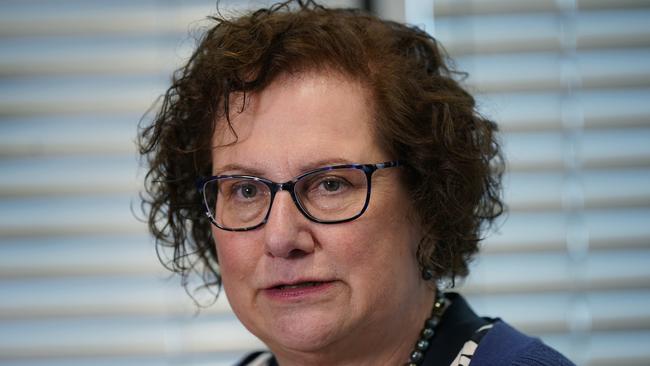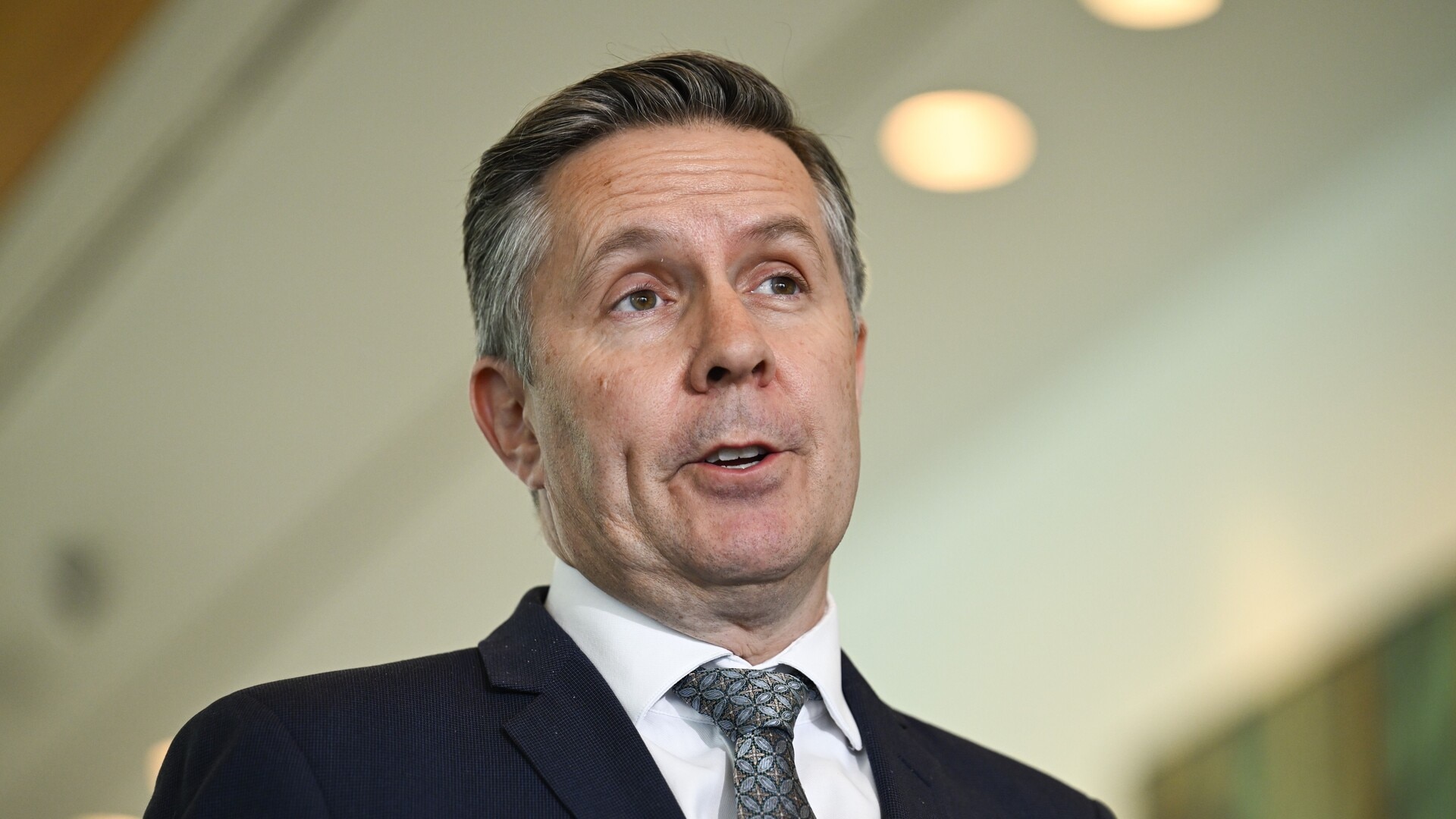Bias scrutinised in Australia’s embrace of treatment model for gender-distressed minors
Gender-affirming care to treat children with dysphoria is discredited overseas yet routine here.
Trans, by its nature, is a world where appearances differ from reality. After years of the activist slogan that “trans women are women”, Britain’s highest court ruled in April that, under equality law, a woman is a biological female.
In a similar way, despite years of assertions that “gender-affirming care” is the gold standard for easing the psychological distress of gender dysphoria in children, it is becoming more and more difficult to deny that this is experimental treatment.
Serious questions are being asked about how the contentious “gender-affirming” medical model became routine treatment at Royal Children’s Hospital Melbourne and thereafter the de facto national standard in Australia for responding to gender-distressed minors.

A series of international evidence reviews and the release of internal documents from RCH Melbourne have challenged the confident claims of gender clinicians. What is emerging is that “gender-affirming” care lacks the solid evidence of mental health benefits necessary to justify routine use of invasive hormonal interventions with vulnerable children.
Gender-affirming medical interventions are offered as routine in our children’s hospitals for under-18s who reject their birth sex and identify as transgender or non-binary.
Children are given puberty blockers to stop normal but unwanted sexual development, followed by the opposite-sex hormones testosterone or oestrogen – meant to be taken lifelong – to masculinise or feminise the only body they will ever have. Some girls under 18 are referred to private surgeons for a double mastectomy; the number is unknown and no official data is available.

After leading the world’s most comprehensive review, British pediatrician Hilary Cass concluded in April 2024 that the normal cautious process of putting research findings into clinical practice had been “reversed” in clinical care for youth with gender-related distress, which she said was a field “of remarkably weak evidence”.
“Based on a single Dutch study, which suggested that puberty blockers may improve psychological wellbeing for a narrowly defined group of children with gender incongruence (a sense of conflict with the body), the practice spread at pace to other countries,” Cass said.
As a result of the Cass review, in 2024 England’s National Health Service announced an end to routine use of puberty blockers for gender-distressed minors, confining these drugs to a proposed clinical trial reflecting the experimental nature of the treatment.
In Australia, it is RCH Melbourne that has championed the gender-affirming treatment model with its promotion of early “social transition” of children to an opposite-sex or non-binary identity, and access to puberty blockers and opposite-sex hormone drugs at younger ages. Even a diagnosis of psychosis or depression is not considered a necessary obstacle to “medical transition”.
All this, as well as advice that double mastectomies “may be appropriate” for distressed girls under age 18, was encoded in the Australian Standards of Care and Treatment Guidelines for Trans and Gender-diverse Children and Adolescents issued in 2018.
This document has been promoted and accepted as the unofficial national standard for treating gender-distressed minors across the country, although it had received no formal government evaluation and its four published authors were from just one centre of expertise: the RCH Melbourne gender clinic.

When parents or journalists raise questions about the gender-affirming medical model, everyone from health ministers to bureaucrats and hospital managers invokes the authority of this RCH guideline. That authority has been undermined by systematic reviews of the scientific literature commissioned independently in jurisdictions as different as Finland, Florida, Britain and Sweden, all of which found the evidence to be very weak and uncertain, inspiring more cautious treatment policies that give priority to psychological interventions.
Against this background, senior psychiatrist Alison Clayton, a Melbourne researcher affiliated with the international Society for Evidence-based Gender Medicine, has called for an independent review of Australia’s uncritical embrace of the RCH guideline and its treatment approach.
“There are serious questions that need to be asked about the clinical governance processes that approved the RCH Melbourne treatment protocol,” Clayton tells Inquirer.
In a forthcoming article drawing on documents obtained under Freedom of Information law, Clayton argues the early social and medical transition approach urged by the 2018 RCH guideline appears not to have followed the normal rules for vetting and approval, exposing minors to potentially serious risks.
In her view there was so little evidence to justify such a radical new treatment model at RCH that it should have been offered only within an ethically controlled clinical trial, so children and parents would be under no illusion about the experimental nature of these interventions.
She says the approach set out in the 2018 treatment guideline “was, and still is, a series of poorly evidenced novel interventions that pose inevitable risks to patients – including, for example, impaired reproductive and sexual function, later detransition (when a young person stops taking hormones) and regret – for a poorly understood condition.”

For the first time, it can be revealed that in September 2019 the RCH gender clinic applied within the hospital for retrospective approval of the treatment approach it was already using as routine.
This was one month after critical news coverage of the RCH treatment guideline in The Australian led then federal health minister Greg Hunt to request a review.
The accompanying letter from the RCH gender clinic to the chairperson of the hospital’s new technology and clinical practice committee said: “It is important to highlight that controversy surrounds the management of gender dysphoria, which has recently been replayed in the public media.”
The clinic’s letter attributed the controversy to “religious beliefs about sexuality”, potentially irreversible effects of medical interventions and the “paucity” of evidence on treatment outcomes.
The application relied on low-quality evidence to claim a high risk of attempted suicide in untreated minors, a doubtful “reversible” status for puberty blockers given to children as young as nine to 12, and a low incidence of regret after treatment.
The clinic’s application was refused in October 2019 by the majority on the hospital’s NTCP committee, whose job is to scrutinise new treatment proposals or medical devices to ensure they are safe and effective.
The committee, which reportedly felt it lacked authority to review an established clinical service, referred the matter to the hospital’s executive team, with the result not captured in the FOI documents.
“Was the RCH treatment protocol approved by the executive? And if so, what was the official and legal basis of this clinical governance process, which appears to have bypassed usual channels?” Clayton asks.

University of Queensland emeritus professor of law Patrick Parkinson says the exposure of this troubling history “adds to a growing body of concerning evidence that the RCH gender service is not complying with normal ethical processes and evidential standards”.
“This not only means that children and young people are being put at risk of unnecessary and harmful medical treatments, but also that the Royal Children’s Hospital is putting its medical reputation on the line,” he tells Inquirer. “Trust may take a very long time to rebuild.”
Parkinson says the revelations also increase the hospital’s liability risk, “especially if a court concludes that the treatment was in truth experimental, and parents and children were not told this”.
On Thursday, the US Department of Health and Human Services released a damning 400-page analysis of the gender-affirming medicalisation of distressed minors, a puberty blocker-driven practice pioneered by clinicians in the Netherlands who had been treating adult transsexuals without much success.
The HHS report says: “In many areas of medicine, treatments are first established as safe and effective in adults before being extended to pediatric populations. In this case, however, the opposite occurred: clinician-researchers developed the pediatric medical transition protocol in response to disappointing psychosocial outcomes in adults who underwent medical transition.”
In her analysis, Clayton questions whether, back in 2019, the gender clinic had given a complete and accurate account of the radical change represented by the treatment model proposed in its 2018 guideline document.
She says a prerequisite for approval by the NTCP committee at RCH was that “evidence of efficacy and clinical effectiveness must exist”, and any application also had to include a review of the scientific literature.
According to the FOI documents, the gender clinic admitted the “paucity of published data on the clinical effectiveness of treatment for gender dysphoria”, cited only one 2014 study with results, mislabelling it American when it was Dutch, and referred to a large US study under way, with no results available.
Neither the application for approval by the NTCP committee nor the RCH treatment guideline referenced a systematic review of the scientific literature – the kind of review that produces high-quality evidence. Clayton says this was surprising because the results of such a systematic review had been published in 2018. Published in a leading journal, Pediatrics, it was promoted as the “first systematic review” of its kind and had funding from the RCH Foundation. RCH gender clinic head of research Ken Pang was one of the authors.

This 2018 systematic review found a lack of evidence for the hormonal treatments used by gender-affirming clinics and noted the key Dutch studies were at a high risk of bias, meaning the mental health improvements they attribute to hormones and surgery might be illusory.
“(The 2018 RCH systematic review) specifically noted that there was no research evaluating psychosocial outcomes of cross-sex hormones in trans youth,” Clayton says.
She says a systematic review provides higher level evidence than individual studies and is required for a treatment guideline to be judged as trustworthy enough to be applied in clinical practice.
“That the RCH guidelines failed to cite their own systematic review is another indication that those guidelines are untrustworthy,” she says.
In its September 2019 application to the hospital’s NTCP committee, the RCH clinic claimed its 2018 treatment guideline represented “only minor adjustments” to longstanding clinical practice.
In Clayton’s opinion, the RCH guideline did not involve a minor variation on practice but a significant change in risks to patient safety. In her view, the gender clinic should have sought approval from the hospital’s human research ethics committee to offer the treatment only within a strictly controlled clinical trial, reflecting the lack of good evidence for beneficial outcomes.
Clayton regards the 2018 RCH treatment model as, in fact, more radical than previous practice at the hospital and less cautious than the Dutch pioneers of pediatric gender change.
For example, she says RCH used to require two independent child and adolescent psychiatrists to assess a child before puberty blockers, and opposite-sex hormones could not be given until age 16 – both safeguards abandoned by the 2018 treatment guideline.
And she says social transition before puberty, promoted by the RCH guideline, was a practice discouraged by the Dutch because of research showing that without adults reinforcing an opposite-sex identity, most children with gender distress early in childhood grew out of gender dysphoria.

In a June 2018 editorial, The Lancet praised the RCH guideline, noting that it “stood apart” from existing advice by recommending child-led social transition and access to hormonal treatment without any minimum age stipulations.
In August 2019 the British-based medical journal published a profile of RCH gender clinic director Michelle Telfer, who said: “I knew that (the 2018 guideline) might be controversial because of the changes we made from the previous guidelines, but that was the whole point – to make changes so that the guidelines were clinically relevant.”
Clayton maintains that the Australia-wide adoption of the RCH guideline calls for a rigorous review by an agency without conflicts of interest.
Officials advising federal Health Minister Mark Butler have a track record of uncritically accepting claims from the RCH guideline, and failing to convey the full extent and import of the international shift away from gender-affirming medicine for minors led by Britain, Sweden and Finland.
Asked for advice on Cass’s landmark report in April 2024, officials in the Department of Health and Aged Care cited the “widely accepted” RCH treatment guideline to suggest all was in order.
However, Butler was told in a briefing note from his department that the RCH guideline was among those judged by Cass-commissioned research to be poor in rigour and independence, meaning that clinicians would be unwise to trust it.
In December 2024, according to FOI documents, Butler sought urgent advice on the case for “a pause or a ban” on puberty blockers following a decision by his British counterpart, Health Secretary Wes Streeting, to impose an indefinite prohibition on private prescribing of these drugs for gender-distressed children.
In the House of Commons Streeting said: “The Cass review made it clear that there is not enough evidence about the long-term effects of using puberty blockers to treat gender incongruence to know whether they are safe or beneficial.
“That evidence should have been established before they were ever prescribed for that purpose. It is a scandal that medicine was given to vulnerable young children without proof that it was safe or effective, or that it had gone through the rigorous safeguards of a clinical trial.”
The December 2024 advice to Butler sought to play down the significance for Australia of the Cass review by suggesting the now closed Tavistock clinic in Britain used a “binary” treatment model – “pursuing a (gender) medical pathway and ignoring other options, rather than offering a wide range of potential pathways”.
By contrast, Butler’s officials highlighted the safeguard of pre-treatment assessment in Australia by the “multidisciplinary team of specialists” in children’s hospitals following the RCH guideline, thereby implying that treatment for non-gender issues, such as autism, would be available.

But that reassuring comparison cannot survive the recent Family Court ruling by Justice Andrew Strum, who ordered that a 12-year-old boy be kept away from an unnamed children’s hospital gender service and its offer of puberty blockers.
The judge found that the child had been attending the gender service for almost four years yet there was no evidence he received a comprehensive assessment and there was no diagnosis of gender dysphoria until the approach of the trial in the court dispute between his parents.
He said the gender service, which supposedly followed the RCH treatment guideline, “has a single approach; gender dysphoria, if diagnosed there, is treated with puberty blockers and attendances upon Dr N or one of her colleagues. No alternative treatment options are offered by the (service) for gender dysphoria diagnosed there, other than prescription of puberty blockers by a pediatrician.”
The evidence of Dr N, the judge said, was “that no child or young person who has been diagnosed with gender dysphoria by, and has asked for puberty blockers from, the (gender service), and has supportive parents, has ever been refused”.
This is a clinical reality at odds with the cautious multidisciplinary model conjured up by Butler’s officials.
In January, however, the minister intervened in a dramatic way damaging to the standing of the RCH guideline.
For reasons unclear in redacted briefing documents, Butler appeared no longer willing to defer to the state health bureaucracies and their de facto national standard.
Instead, he announced that he had asked the National Health and Medical Research Council to draw up “new national guidelines” for care of youth gender dysphoria, while the RCH document would undergo “a comprehensive review”.
Yet the same day his assistant minister, Ged Kearney, took to social media to claim the federal plan was actually an NHMRC “update” of the “excellent” RCH treatment guideline – an update requested by gender medicine lobbyists the Australian Professional Association for Trans Health and activist group Transcend.
The makeup of the expert group to develop the new NHMRC guideline is yet to be announced. It will be scrutinised for any sign of bias towards the gender-affirming treatment model.
Bernard Lane, a former journalist with The Australian, writes Gender Clinic News. RCH Melbourne, Dr Telfer and Dr Pang were sent detailed questions a fortnight ago but did not reply. Dr Clayton’s full analysis will be published next week at www.genderclinicnews.com






To join the conversation, please log in. Don't have an account? Register
Join the conversation, you are commenting as Logout